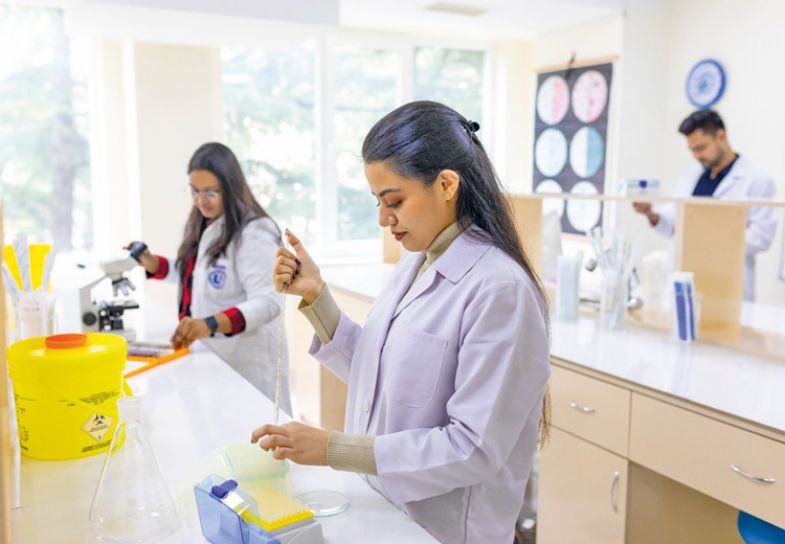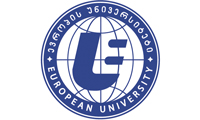
The European University in Georgia offers a robust medical education that allows graduates to pursue careers in healthcare around the world
The medical programme at the European University in Georgia is renowned for its rigorous curriculum and world-class faculty. It offers cutting-edge medical education with a strong emphasis on practical training and research opportunities to ensure graduates are prepared for successful careers in healthcare, both nationally and internationally.
The European University’s medical department is equipped with cutting-edge facilities, and the institution run 40 clinical sites, including the Jo Ann University Hospital, where students can hone their practical skills in an environment that mirrors their future workplace. The European University is the first university in Georgia to operate its own clinic, and being able to deliver clinical training on-site helps it to develop highly employable graduates.
Alikya Chipurupalli, a recent graduate from the university, has used the knowledge she acquired at the European University to find success in India’s Foreign Medical Graduate Examination (FMGE). The FMGE is a screening test for Indian citizens who have obtained their medical degrees from foreign countries. The FMGE tests candidates on their understanding of medical subjects and clinical knowledge to ensure that they meet the necessary standards for medical practice in India. Chipurupalli scored 229 out of 300 in the medical licensing exam on her first attempt, making her the fourth-highest-scoring candidate among Georgian graduates in 2023.
Students who pass the FMGE receive registration certificates from the Medical Council of India or the National Medical Commission, meaning they can practise in India. But their ambitions need not stop there, according to Chipurupalli. “A medical degree from the European University adheres to international standards, and almost every country has a medical licensing exam so students have the opportunity to pursue medicine anywhere they want to,” she says.
Preparation for the FMGE is extensive, requiring a comprehensive study of medical topics and familiarity with the exam format. Chipurupalli believes the university’s support was crucial to her success in the exam and extended beyond the teaching itself. Staff and class cohorts work closely on curriculum design, addressing any challenges in practical training and professional development. “The university was a constant support for any problems as we always were consulted on issues relating to our studies and were part of the decision-making process for our own curriculum,” Chipurupalli says. As she prepares for her professional career ahead, Chipurupalli extends her “heartfelt gratitude” to the university and “the exceptional faculty members who aided me not only in taking this exam but also in my practical training and overall professional growth”.
Find out more about the Faculty of Medicine at the European University.

